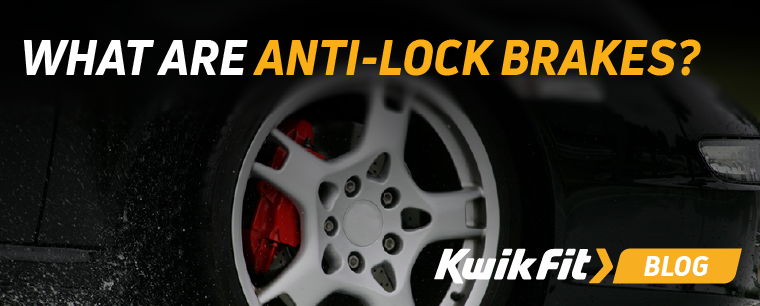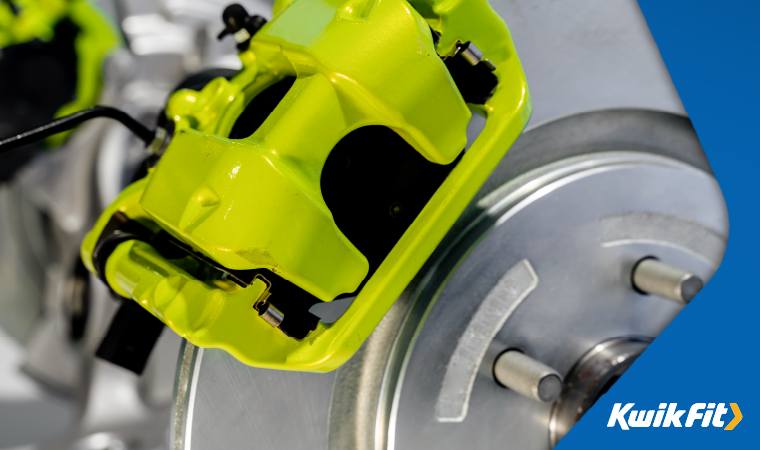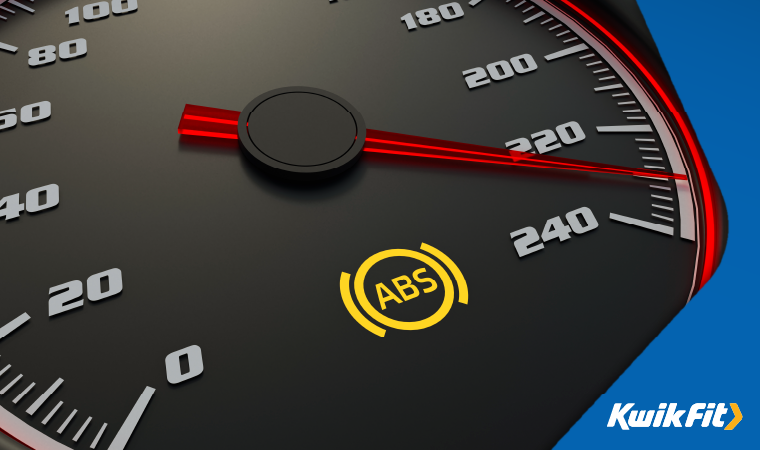What Are Anti-lock Brakes?
Jessica Bird | Thursday 1st May 2025 11:20am

Introduced as a common safety feature in cars by Ford and Chrysler in the 1970s, the concept of anti-lock brakes was inspired by the anti-skid system used in aircrafts and developed by Dunlop in the 1950s.
The anti-skid feature greatly benefited the aviation industry, improving stopping distances at landing, reducing damage to tyres, and helping prevent brakes from locking on ice and other unstable surfaces. Like cars, the latter had been a common cause of accidents.
By developing a similar safety measure for road vehicles, anti-lock brake systems (ABS) soon became a key component of modern car safety. Today, all new cars that are sold in Europe must be fitted with ABS and they have since stopped a huge amount of accidents. But what exactly are anti-lock brakes, how do they work, and when are they most effective?
What are anti-lock brakes?
Anti-lock brake systems are essentially a computer-assisted way to brake more effectively. They allow wheels to keep a good grip on the road, working with your standard brakes to bring you to a safe and steady stop. Without ABS, wheels could lock up and drag along the road instead of continuing to spin when you brake suddenly, resulting in little to no traction.
It is almost impossible to steer when this happens, feeling similar to driving on ice or coasting around a corner. As you might imagine, this can be dangerous as your wheels donít have a steady grip on the road.
What is the difference between standard brakes and anti-lock brakes?
The biggest difference between regular brakes and anti-lock brakes (ABS) lies in how they handle sudden or hard braking situations.
Anti-lock brakes
Anti-lock brakes use sensors and a control module to automatically modulate brake pressure when hard braking is detected. This system is especially useful in slippery conditions, as it helps improve vehicle stability and stopping performance.
Regular brakes
Regular brakes rely on the driver to manually modulate braking pressure. If the driver presses the brake pedal too hard, the wheels can lock up, leading to skidding and a loss of steering control.

How does ABS work?
The primary aim of an ABS is to ensure stability in any situation. Rather than clamping the brake pads onto the brake disc when you suddenly press the brake pedal, an ABS system can monitor the forces in the wheel and release the brakes temporarily before the wheel skids. It can release and re-clamp many times a second Ė which means youíre far less likely to skid, and still able to steer while braking.
By applying the correct braking pressure for each wheel repeatedly, the car can come to a stop safely while keeping the tyres rolling and in contact with the roadís surface.
When are anti-lock brakes most effective?
Whenever you need to suddenly slow down while still retaining the ability to steer (which, essentially is any time you need to suddenly slow down), ABS can be a lifesaver.
Contrary to popular belief, ABS doesnít significantly reduce your vehicleís stopping distance. In fact, it may even increase it, particularly on wet or icy roads. Without anti-lock brakes, your vehicle could come to a stop faster, but you would have less control. With an ABS, your vehicle can stop in a safer manner, but it may take a little longer.
What triggers anti-lock brakes?
The ABS will kick in whenever you brake promptly to come to a stop, but it may not come into effect every time if it senses that it doesnít need to. They are least effective on loose dirt, mud, snow, or any other slippery surfaces. However, on loose surfaces, such as dirt tracks, the tyres are able to naturally dig in and stick to the surface much better. Thatís why, in some off-road vehicles, there is an option to turn the ABS off, potentially enhancing the performance.
ABS is also vital for maintaining control on surfaces with uneven resistance. Take, for example, a road thatís wet on one side and dry on the other; thereís a big difference between the levels of resistance on each side of the road. This means that when braking, the wheels on the dry side will slow down faster than the wheels on the wet side.
A good ABS system is able to tell that certain wheels have less resistance than others and evens out the amount of braking force applied to each wheel in order to keep the car steady.
How do you stop with anti-lock brakes?
To stop in a vehicle with anti-lock brakes (ABS), follow these steps:
- Apply firm and steady pressure to your brake pedal. Avoid pumping the brakes because the system is designed to modulate the braking force.
- Hold the pedal down, even when you feel a pulsating sensation or hear noises - this just means the system is working.
- Steer as needed to maneuver around obstacles while braking if necessary.
- Avoid releasing the brake pedal until you have complete control of the vehicle.
By following these simple steps, youíll be able to control your car until you stop in a safe place with your ABS system.
When will anti-lock brakes take effect?
You may occasionally feel your anti-lock brakes working when you apply the brakes. It usually feels like a pulsing in the brake pedal that you can sense through your foot. This will be especially noticeable when you perform an emergency brake. In this case, the pulsing feeling might be pretty violent, but you should continue pressing the brake, allowing the ABS to do its job.
If youíre attempting to force your ABS into action, avoiding repeatedly tapping the brake pedal would be advisable. In older cars, this technique was used to make the brakes unlock, but with modern cars, ABS will do this job for you. If anything, pumping the brakes could even mean it takes you longer to stop.
What should you never do with anti-lock brakes?
When driving in a vehicle equipped with ABS, you should never pump the brakes. This is because, unlike regular braking systems, ABS automatically modulates brake pressure to prevent wheel lockup, allowing you to maintain steering control during hard braking.
By pumping the brakes, you can interfere with the ABS, reducing its effectiveness and increasing stopping distances. All you need to do is firmly press and hold the brake pedal while steering as required to avoid obstacles. If your ABS system is working correctly, it will engage and pulsate the brakes rapidly.

What does the ABS warning light mean?
In the event of a fault developing with your carís ABS or if it is simply not working, you will be alerted via an orange warning light on your dashboard. The cause of a fault to the ABS could be a blockage in the release valves or damage to the sensors. Itís rare for an ABS to become damaged, as theyíre built for reliability and durability.
However, if the warning light is glowing on your dashboard, you should get your car checked immediately. Putting this off could put your own safety, as well as that of other road users, at risk as the ABS is unlikely to step in when itís required.
Need your brakes checked?
If your car is pulling to one side when you brake, or your brakes donít seem to be as effective as they used to be, then you should book your car in for a brake inspection at your local Kwik Fit.
Contact us with any further questions you may have about your brakes, and weíll be happy to help you find a solution.
Any facts, figures and prices shown in our blog articles are correct at time of publication.
Featured Articles
Is it Illegal to Drive With One Headlight?
Saturday 19th July 2025
Wondering if itís illegal to drive with one headlight? Learn about the safety risks and penalties of illegal blown bulbs and why you should fix them promptly.
Air Con in EVs & Hybrids: Experts Answer Your Questions
Monday 30th June 2025
Does air con drain EV batteries? Can you use the air con while charging an electric car? Find out the answers to these questions & more from Kwik Fitís experts.
Why Is Your Car Making a Noise? Fixes & Tips
Friday 13th June 2025
When your car starts making unexpected noises, it can certainly be quite disconcerting; it may be nothing to worry about, but hereís what you need to know.









